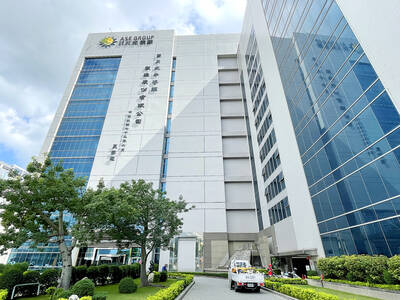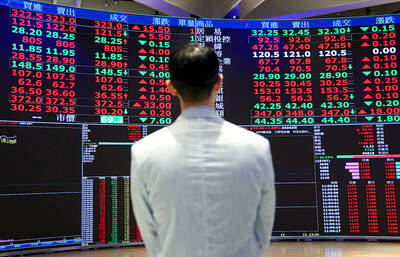Nobel Prize-winning economist Paul Krugman said global economic growth would be about 1.5 percentage points higher if China stopped restraining the value of its currency and running trade surpluses.
Krugman said China’s currency policy has a “depressing effect” on economic growth in the US, Europe and Japan, as measured by GDP. If China’s currency, the yuan, were not undervalued, it would have a “significant” impact on the global recovery, he said.
“If we could get some change in China’s currency policy, it would help the world,” Krugman said at an Economic Policy Institute event in Washington on Friday.
The US has refrained from calling China a currency manipulator, while also criticizing its lack of flexibility in foreign exchange policy.
The Chinese central bank has kept the yuan at about 6.8 per US dollar since July 2008, as part of stimulus efforts to help China weather the global recession.
The IMF predicted in January the world economy will expand 3.9 percent this year after a contraction of 0.8 percent last year. China’s economy was forecast to grow 10 percent this year and 9.7 percent next, the IMF said.
Krugman said the world economy wouldn’t be hurt, and could benefit, if China were to sell off a large portion of its dollar-denominated assets.
He said that if China were to sell all of its US investments, it would help the economy by acting as a form of quantitative easing and fighting a “liquidity trap” that has recently been affecting the US economy.
“We should not be afraid of what the Chinese might do if we pressure them to stop this currency manipulation,” Krugman said.
Krugman said the US may need to get more aggressive in its negotiations with China, perhaps by treating the exchange-rate issue as a countervailing duty or other export subsidy.
China’s central bank said a stronger yuan wouldn’t help solve the trade imbalance between China and the US after US President Barack Obama repeated his call for the Asian nation to move to a “market-oriented exchange rate.”
“We do not think a country should rely on others to solve its own problems,” Su Ning (蘇寧), deputy governor of the bank, said on Friday, Xinhua news agency reported.

EXPANSION: The investment came as ASE in July told investors it would accelerate capacity growth to mitigate supply issues, and would boost spending by 16 percent ASE Technology Holding Co (ASE, 日月光投控), the world’s biggest chip assembly and testing service provider, yesterday said it is investing NT$17.6 billion (US$578.6 million) to build a new advanced chip packaging facility in Kaohsiung to cope with fast-growing demand from artificial intelligence (AI), high-performance-computing (HPC) and automotive applications. The new fab, called K18B, is to commence operation in the first quarter of 2028, offering chip-on-wafer-on-substrate (CoWoS) chip packaging and final testing services, ASE said in a statement. The fab is to create 2,000 new jobs upon its completion, ASE said. A wide spectrum of system-level chip packaging technologies would be available at

Taiwan’s foreign exchange reserves hit a record high at the end of last month, surpassing the US$600 billion mark for the first time, the central bank said yesterday. Last month, the country’s foreign exchange reserves rose US$5.51 billion from a month earlier to reach US$602.94 billion due to an increase in returns from the central bank’s portfolio management, the movement of other foreign currencies in the portfolio against the US dollar and the bank’s efforts to smooth the volatility of the New Taiwan dollar. Department of Foreign Exchange Director-General Eugene Tsai (蔡炯民)said a rate cut cycle launched by the US Federal Reserve

HEAVYWEIGHT: The TAIEX ended up 382.67 points, with about 280 of those points contributed by TSMC shares alone, which rose 2.56 percent to close at NT$1,400 Shares in Taiwan broke records at the end of yesterday’s session after contract chipmaker Taiwan Semiconductor Manufacturing Co (TSMC, 台積電) hit a fresh closing-high amid enthusiasm toward artificial intelligence (AI) development, dealers said. The TAIEX ended up 382.67 points, or 1.45 percent, at the day’s high of 26,761.06. Turnover totaled NT$463.09 billion (US$15.22 billion). “The local main board has repeatedly hit new closing highs in the past few sessions as investors continued to embrace high hopes about AI applications, taking cues from a strong showing in shares of US-based AI chip designer Nvidia Corp,” Hua Nan Securities Co (華南永昌證券) analyst Kevin Su

Nvidia Corp’s major server production partner Hon Hai Precision Industry Co (鴻海精密) reported 10.99 percent year-on-year growth in quarterly sales, signaling healthy demand for artificial intelligence (AI) infrastructure. Revenue totaled NT$2.06 trillion (US$67.72 billion) in the last quarter, in line with analysts’ projections, a company statement said. On a quarterly basis, revenue was up 14.47 percent. Hon Hai’s businesses cover four primary product segments: cloud and networking, smart consumer electronics, computing, and components and other products. Last quarter, “cloud and networking products delivered strong growth, components and other products demonstrated significant growth, while smart consumer electronics and computing products slightly declined,” compared with the